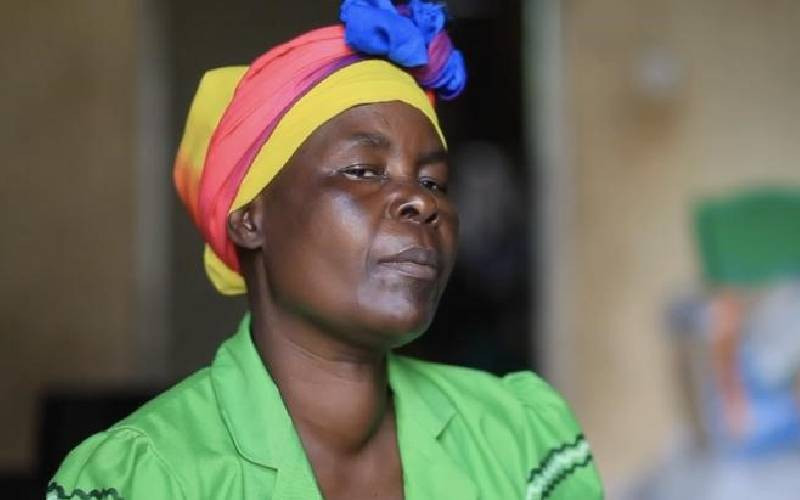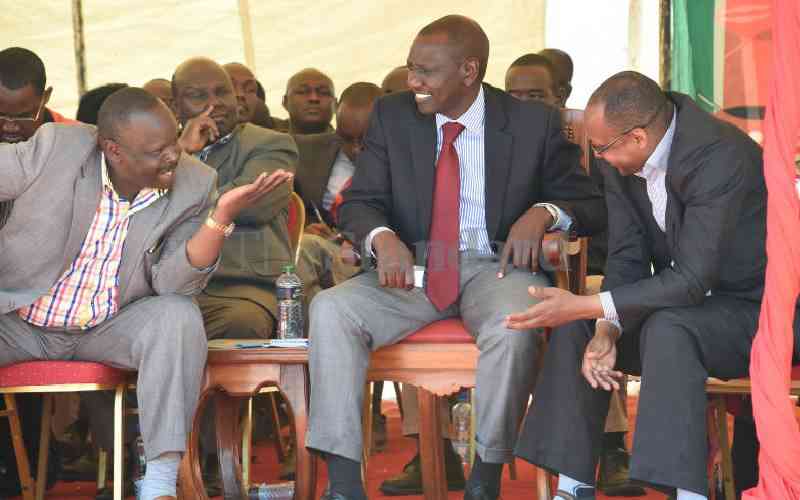We will lay young Emmy Chepng’etich to rest today, in the quiet village of Chebaraa in Chepalungu. Emmy was diagnosed with cancer of the blood on October 16. She died nine days later, as her parents made frantic efforts to fly her out to Texas, USA, for specialised attention.
Last Friday, we looked at each other in forlorn despair as her lifeless body lay in her hospital bed, her soul just departed. The feeling of defeat overwhelmed friends and relatives who had travelled from far and wide, to see her take an air ambulance to the US. It was going to be a long journey with a number of stop-overs for refueling and even change of ambulance, courtesy of AMREF. But it was not to be.
The fight was lost. Emmy went to be with God. She left us in the prime of youth. And she was no ordinary youth. At 25, she was an engineer – like her mother – and a star cricketer who became the skipper of the national women’s team at age nineteen. She was a footballer and an accomplished swimmer with a number of awards in her bag. She was licensed to drive trucks and lorries at age eighteen.
She taught herself to play the piano and was the pianist in her church. She played the guitar and sundry musical instruments. Need I go on? Suffice it to say Emmy was a self-made national figure on the rise, despite a distinguished parental background. Her political father kept his family out of the rough and tumble that informs his life, since his days as a student leader at the University of Nairobi in the early 1980s.
We have heard that we should take Emmy’s passing on with acceptance of God’s will. Which is a good thing to do. Yet Emmy’s death at 25 ought to disturb us. It ought to wake us up to some harsh reflection and reality that cannot be successfully hidden behind the niceness of constructs like “acceptance of God’s will” and miscellaneous sweeteners in times of tragic loss and grief.
As a Christian gentleman, I refuse to believe that God wills that parents should bury their children in the prime of youth. Something is grossly wrong with a society that buries its children when they are only 25. This is regardless that the children die in accidents or from some ailment. Do these things just happen? Even accidents seem to be caused, in the main. Some societies accept this fact and do something about it. Others shrug their shoulders and do nothing more. They pay the price.
Emmy’s passing ought to prick our collective conscience as Kenyans and Africans at large. It ought to be the wake up call. And she is not alone, of course. There are many similar cases everywhere in our country and in Africa. We bury out children all the time.
But is it not ironic that this promising young lady should die of cancer in the one month that is globally recognised as the cancer awareness season? Second, is it not ironic that she died on the day she should have been flown out of the country? And third, consider that she must have lived with this condition for a while before it was eventually diagnosed. All these ironies are indictments against our diagnostic capacity.
But look, even after the diagnosis, it became necessary to arrange to fly her out of Kenya. This was the only way to keep hope alive. We are also reminded that as we lay Emmy to rest, Zambia’s President, Michael Sata, died in a London hospital, on Wednesday. He died of an undisclosed something. He was sneaked out of his country a few weeks ago to “some unknown place” for treatment. That is how stark the African condition is.
Our heads of State and Government don’t die at home. They die in medical exile. For Zambia, this is the second time a sitting President has died in medical exile. In July 2008, Zambia’s third President Levi Mwanawasa died in a Paris hospital, of a condition that has never been quite disclosed.
In 1984, Ahmed Sekou Toure of Guinea died in the US, on an operating table. Recently, Omar Yardua of Nigeria went the same way. Even the iconic Mwalimu Nyerere of Tanzania died in medical exile. The only top African leader who dies at home is the gentleman who suffers sudden heart attack, or the one whose life is taken, like Haile Selassie, Samuel Doe and Anwar Sadat. The rest die in political or medical exile. And so nobody really cares to do anything about proper medical care.
We treat doctors like a mass of bad rubbish. Consider that while cancer is today rated the number one killer in Kenya, the country has only twelve oncologists to serve a population of 40 million. Doctors at the Kenyatta National Hospital have not been paid for two months now. They are tossed this way and that way, as everybody denies that they are his responsibility. This “Everybody” goes home at night to sleep well with his Conscience.
Africa has been independent for almost sixty years now. It is a shame, really, a big shame that we must still go out of the country if we have to keep alive the hope that we will live. Other people have done the essential research. What is left for us to do would appear to be technological transfer. If our scientists have no capacity and capability to research, can we not – at the very least – transfer here what others have laboured and found out?
We are medical exiles because of the twin forces of lethargy and avarice on the part of those charged with the responsibility to create medical infrastructure. When they should be creating the infrastructure and transferring technology – if not discovering and inventing – they are feeding insatiable personal omnivorous appetites. But death itself ought to remind us of the futility of unbridled primitive accumulation of wealth. It ought to generate in us fellow feeling for others and the desire to leave a better place behind when we eventually go – for go we must go someday.
Young Emmy Chepng’etich Ruto has left having done her bit as best as she could. The rest is for you and me. Her parents have elected to help set up a cancer centre – ChepCricket Cancer Centre, after her personal pet name fashioned after the game that was the love of her life. May it not be in vain. Meanwhile fare thee well, ChepCricket.
We will see you in some other place, for as the great poet said:
Stay informed. Subscribe to our newsletter
.. the sword outwears its sheath,
And the soul wears out the breast,
And the heart must pause to breathe,
And love itself have rest.
Though the night was made for loving,
And the day returns too soon,
Yet we’ll go no more a roving
By the light of the moon.
 The Standard Group Plc is a
multi-media organization with investments in media platforms spanning newspaper
print operations, television, radio broadcasting, digital and online services. The
Standard Group is recognized as a leading multi-media house in Kenya with a key
influence in matters of national and international interest.
The Standard Group Plc is a
multi-media organization with investments in media platforms spanning newspaper
print operations, television, radio broadcasting, digital and online services. The
Standard Group is recognized as a leading multi-media house in Kenya with a key
influence in matters of national and international interest.
 The Standard Group Plc is a
multi-media organization with investments in media platforms spanning newspaper
print operations, television, radio broadcasting, digital and online services. The
Standard Group is recognized as a leading multi-media house in Kenya with a key
influence in matters of national and international interest.
The Standard Group Plc is a
multi-media organization with investments in media platforms spanning newspaper
print operations, television, radio broadcasting, digital and online services. The
Standard Group is recognized as a leading multi-media house in Kenya with a key
influence in matters of national and international interest.








